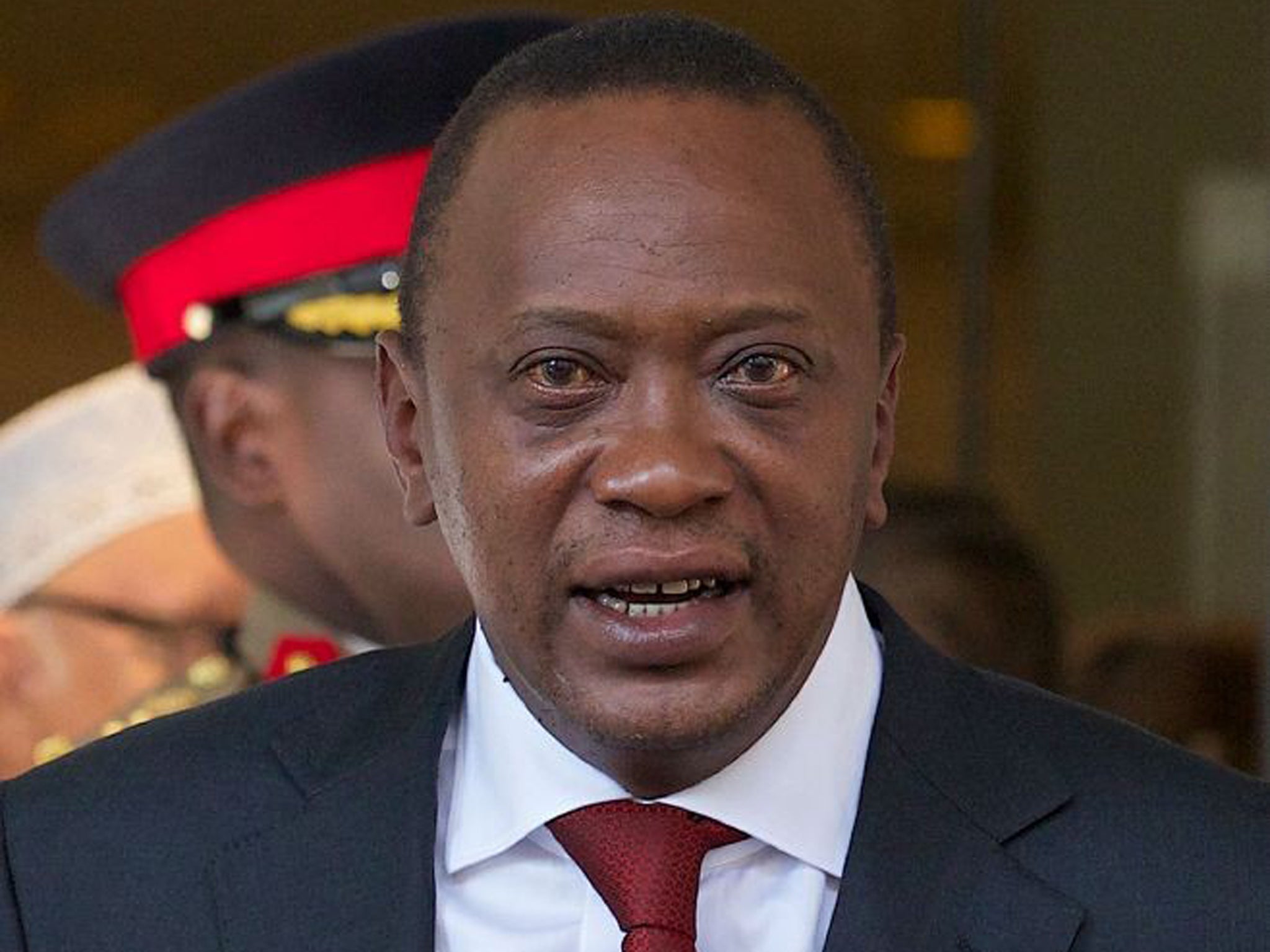Kenyatta war crimes trial: Prosecutor asks for delay after witnesses withdraw in case against Kenyan president

Your support helps us to tell the story
From reproductive rights to climate change to Big Tech, The Independent is on the ground when the story is developing. Whether it's investigating the financials of Elon Musk's pro-Trump PAC or producing our latest documentary, 'The A Word', which shines a light on the American women fighting for reproductive rights, we know how important it is to parse out the facts from the messaging.
At such a critical moment in US history, we need reporters on the ground. Your donation allows us to keep sending journalists to speak to both sides of the story.
The Independent is trusted by Americans across the entire political spectrum. And unlike many other quality news outlets, we choose not to lock Americans out of our reporting and analysis with paywalls. We believe quality journalism should be available to everyone, paid for by those who can afford it.
Your support makes all the difference.The prosecutor of the International Criminal Court has asked judges to delay the start of the war crimes trial of Kenyan President Uhuru Kenyatta due to a lack of evidence.
ICC Prosecutor Fatou Bensouda said in a statement she needs time to reconsider her case after one key witness decided not to testify and another confessed to giving false evidence “regarding a critical event” in the case.
“Having carefully considered my evidence and the impact of the two withdrawals, I have come to the conclusion that currently the case against Mr Kenyatta does not satisfy the high evidentiary standards required at trial,” she said.
Judges at the court in The Hague, Netherlands must rule whether to grant the adjournment — or perhaps dismiss the case.
Lawyers for Kenyatta have previously petitioned the court for a dismissal, arguing that evidence against Kenyatta was tainted by false testimony. That argument has been bolstered by Bensouda's remarks.
Human rights groups have previously warned that witnesses in the case are being intimidated. Human Rights Watch lawyer Liz Evenson on Thursday called Bensouda's statement “deeply disturbing.”
The move to delay the trial “comes in the context of an unprecedented climate of witness interference that the government has failed to check,” Evenson said.
“We hope the prosecutor will use every appropriate means to continue her investigation” and see if she can proceed, Evenson said.
The prosecutor did not specify a time in which she might be ready to take the case to trial. Kenyatta's trial has been delayed once at the request of the defense, and was due to start on 5 February.
Kenyatta has pleaded innocent to charges of crimes against humanity, including murder, rape, forcible population transfer and persecution, for his alleged role organizing violence after Kenya's 2007 elections that left more than 1,000 people dead by early 2008.
Kenyatta, the son of Kenya's founding president Jomo Kenyatta, was elected president earlier this year despite his 2011 indictment by the ICC. Popular resistance among Kenyans to the court's authority may have helped his campaign.
African countries accuse the ICC of disproportionately targeting African leaders. The court has indicted only Africans since it was established in 2002, although half of the eight cases it is prosecuting were referred to it by African governments.
Earlier this year, the United Nations declined a request from the African Union to ask the court for a one-year delay of Kenyatta's trial. African leaders said trying Kenyatta, a sitting president, could have a destabilizing influence on the Horn of Africa.
AP
Join our commenting forum
Join thought-provoking conversations, follow other Independent readers and see their replies
Comments